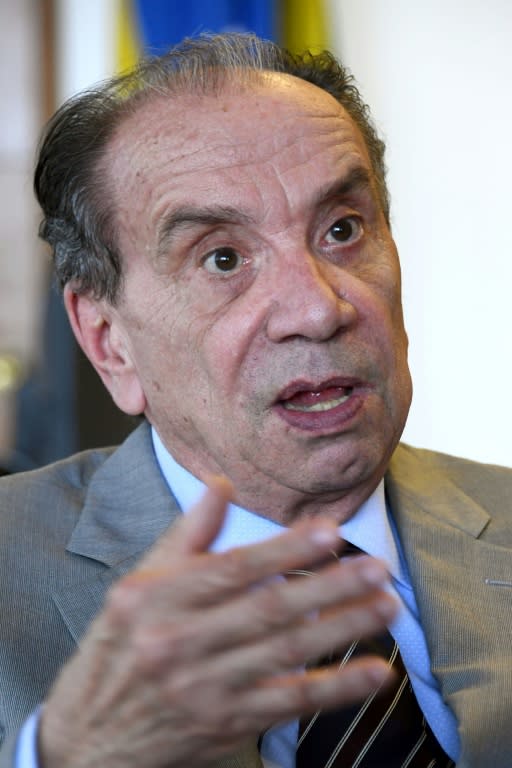Brazil minister expresses frustration with EU side in Mercosur trade talks
Brazil's Foreign Minister Aloysio Nunes says he expects more "movement" from the European Union as long running talks on a free trade deal with his South American bloc Mercosur head into the home stretch. "We expect a little more, some movement beyond what the European Union has offered up to now, especially in the agricultural goods sector, market access," Nunes said in an interview with AFP. Nunes was speaking ahead of a new round of talks in Montevideo in September at which both sides are hoping to finally push the talks -- which have been going on for almost 20 years -- over the line. With an historic agreement edging closer, EU farmers have expressed fears over an influx of South American beef. Meanwhile, the four Mercosur countries -- Brazil, Argentina, Uruguay and Paraguay -- are similarly nervous about opening up their markets to European carmakers. "On Mercosur's part, there is total disposition," insisted the Brazilian minister. "We have made progress in this negotiation, bringing us very close to the interests expressed by the European Union." "On the European Union side, we have not seen the advances that we expected in some areas of great interest to Mercosur, especially in the agricultural sector," he said. - 'Very limited' EU quota - The Mercosur countries are all food exporters but have run up against powerful European Agro-industry interests as well as concerns expressed by environmentalists. The sides had been expected to wrap up the talks in December but failed in part because Mercosur rejected an EU beef quota offer as too low. "The quota that was offered to us is a very limited quota -- in meat 99,000 tons, and in sugar, 150,000 tons. We don't want tariffs applied within this quota, because if so, it will be as if the quota did not exist." European Trade Commissioner Cecilia Malmstrom and Agriculture Commissioner Phil Hogan are expected to attend the talks in Montevideo. The Brazilian minister, who is heading the Mercosur negotiating team, expressed hopes of a breakthrough. "We hope that this agreement can be realized given the importance that it has, both in Mercosur and in the European Union, and I would say even more so for the international environment, because it would be an agreement that would affirm the principles of exchange and international trade, that goes against the current of protectionism gaining ground in many European countries." Mercosur began negotiating a free trade agreement with the EU in 1999. The talks regained momentum when President Donald Trump arrived in the White House in 2017. - A new UNASUR - The foreign minister also positioned himself on the future of the Union of South American Nations (UNASUR) after Colombia announced its withdrawal over the involvement of Venezuela. "We are in favor of maintaining UNASUR with a new format, more focused, de-ideologized and with more effective management and decision-making," he said. Brazil, along with Colombia, Chile, Peru and Paraguay, decided in April to suspend participation in UNASUR until the appointment of a new secretary general to replace Colombian Ernesto Samper, who left office in January 2017. The regional bloc was founded in 2008, promoted by then-presidents Luiz Inacio Lula da Silva of Brazil and Hugo Chavez of Venezuela.



